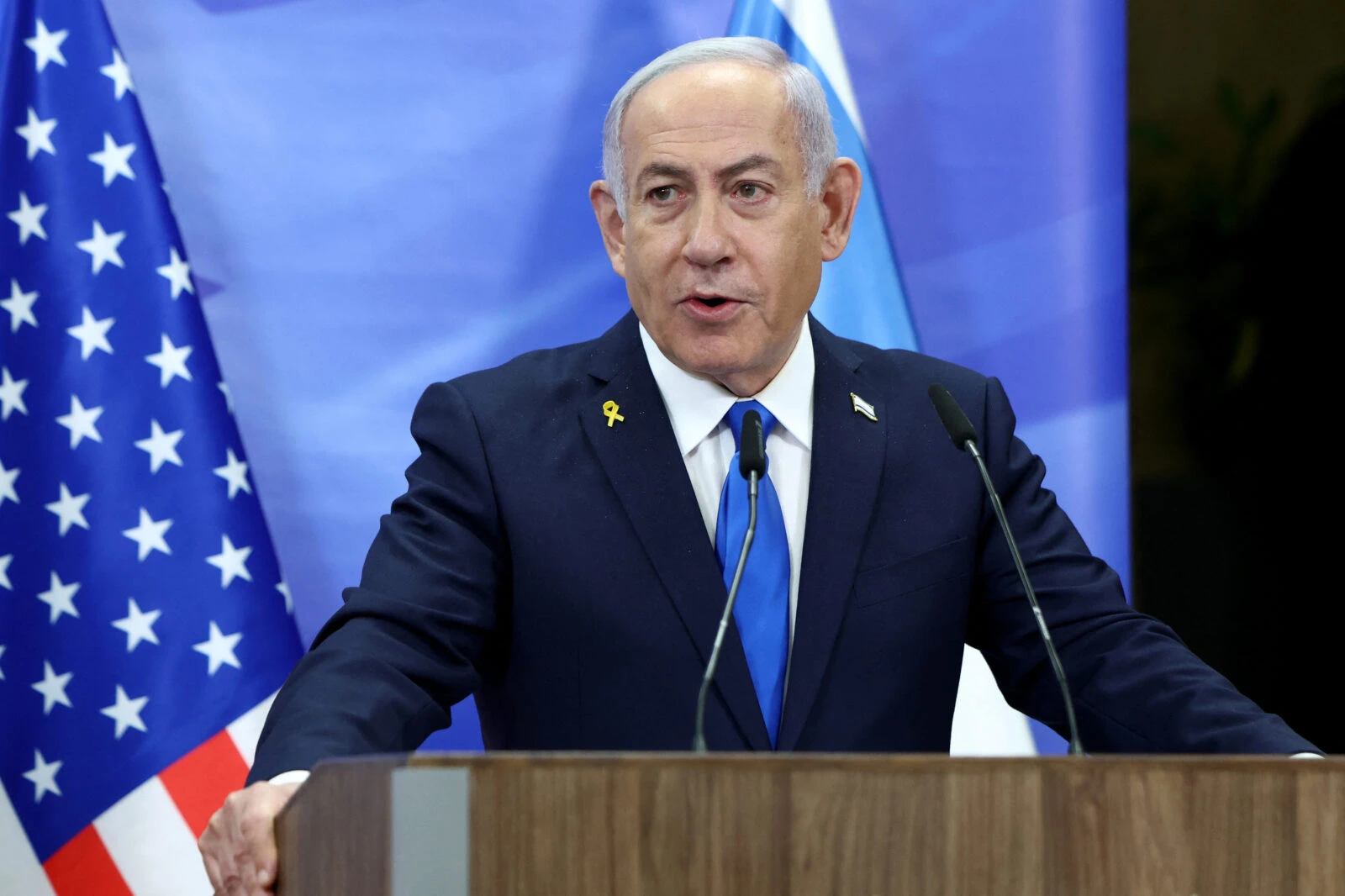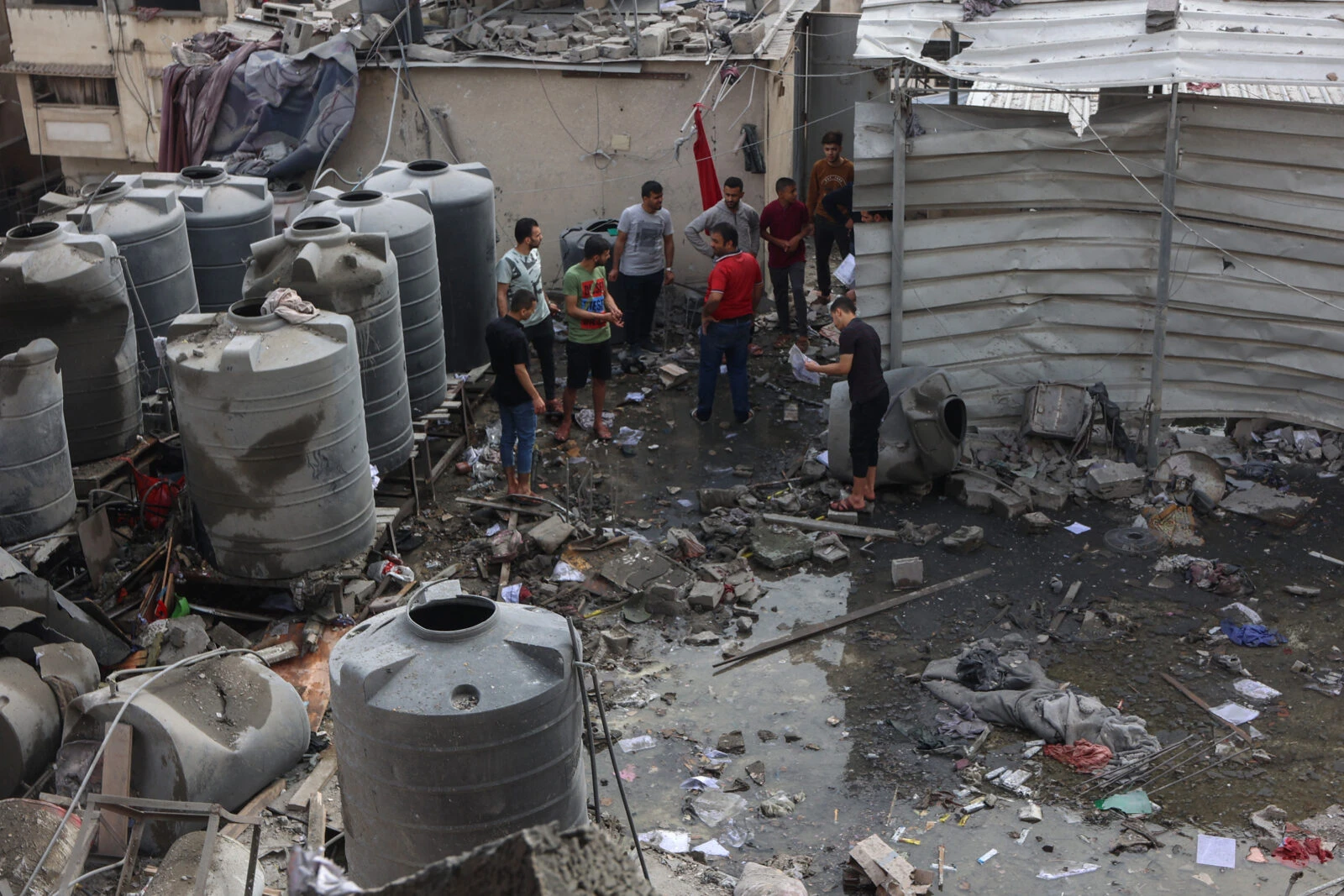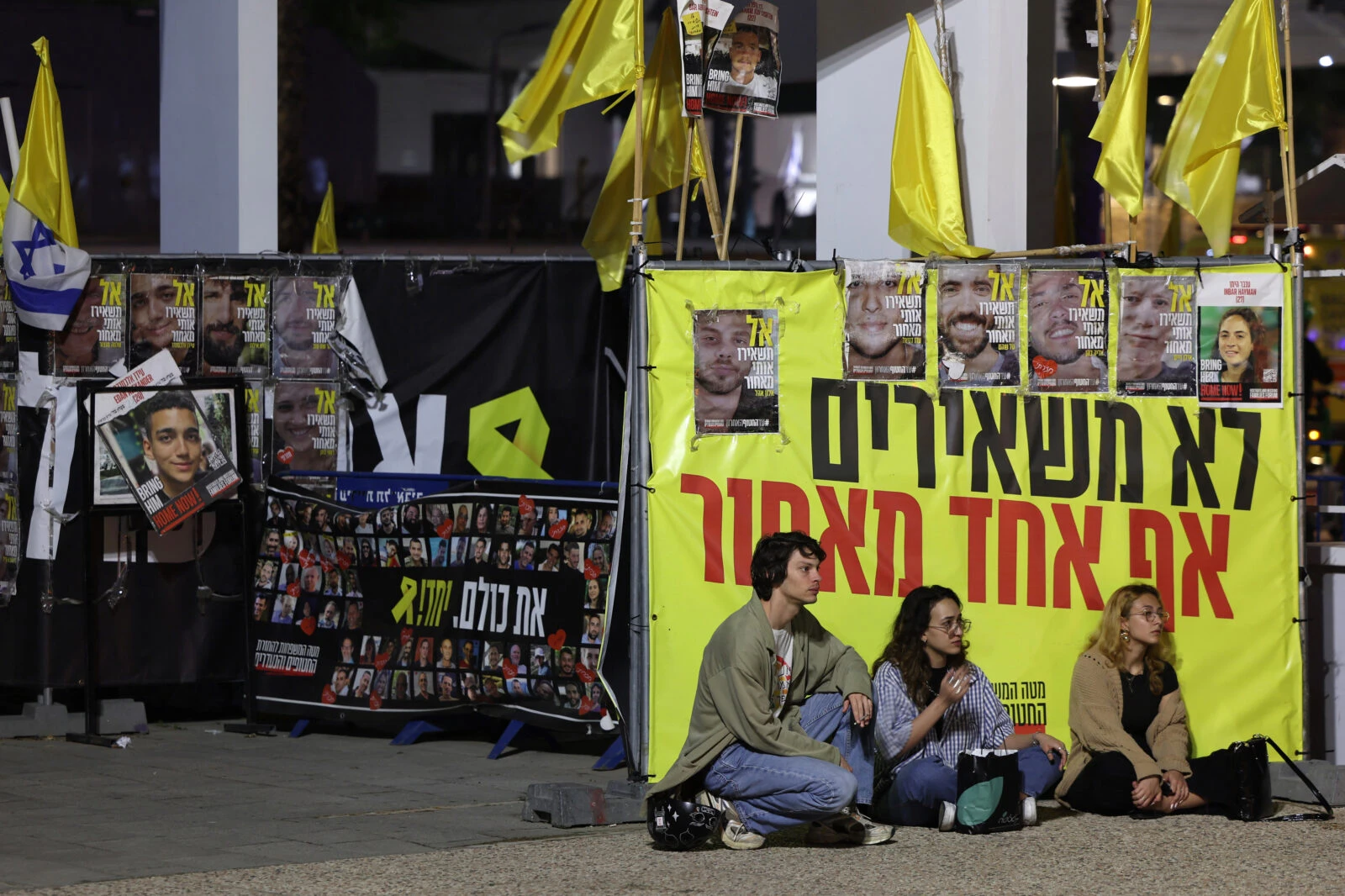Israeli analyst says Netanyahu reluctant to end Gaza war to preserve political future
 Israel's Prime Minister Benjamin Netanyahu attends a press conference with US President Donald Trump in the East Room of the White House in Washington, DC, on February 4, 2025. (AFP Photo)
Israel's Prime Minister Benjamin Netanyahu attends a press conference with US President Donald Trump in the East Room of the White House in Washington, DC, on February 4, 2025. (AFP Photo)
Israeli political analyst Yoni Ben-Menachem said that Israeli Prime Minister Benjamin Netanyahu ties his political future to the outcome of the Gaza war and is therefore reluctant to end the conflict.
Speaking to Anadolu Agency, Ben-Menachem, former director-general of Israel’s state television, stated that Netanyahu believes his government would collapse if the war were to end now.
“According to intelligence information, there are still about 500 kilometers (310 miles) of tunnels and approximately 20,000 armed Hamas fighters remaining in Gaza. These figures are a scandal for Netanyahu and indicate that after 19 months of war, no significant achievement has been made,” Ben-Menachem said.

Netanyahu’s political future at risk if Hamas remains
Ben-Menachem emphasized that Netanyahu’s only chance of winning the upcoming elections, scheduled for next year, hinges on achieving clear success in Gaza.
“The government’s official term ends in one year. If Hamas is not overthrown by then, Netanyahu’s government will lose the elections,” he said.
The analyst noted that Netanyahu believes ending the war would topple his government and alleged that Netanyahu conveyed this political calculation to U.S. President Donald Trump, suggesting Trump, as a politician, would understand the situation well.
Ben-Menachem argued that Netanyahu is mainly concerned with his future, the elections, and the personal consequences he may face.

Gaza military administration backed by far-right ministers
Ben-Menachem explained Netanyahu has succumbed to demands from far-right figures such as National Security Minister Itamar Ben-Gvir and Finance Minister Bezalel Smotrich, who advocate for the continuation of the war, the occupation of Gaza, and the establishment of a military administration.
“The majority of the government wants a military administration in Gaza. For this to happen, Israel would need to occupy Gaza,” he said, noting that an occupation would be costly both financially and militarily but is still seen by some as preferable to leaving Hamas in control.
Ben-Menachem added that Ben-Gvir and Smotrich have threatened to collapse the government if Gaza is not occupied and placed under military rule.

Contentious debate over humanitarian aid in Gaza
On the issue of humanitarian aid to Gaza, Ben-Menachem noted internal divisions within Israel.
“There are those who oppose the entry of humanitarian aid, believing that only by maintaining pressure can Hamas be forced to accept Israel’s conditions for a cease-fire,” he said.
Some cabinet ministers have suggested that the Israeli army should oversee the distribution of aid if allowed to enter, but according to Ben-Menachem, the army has so far been reluctant to take on this role.
He mentioned that Israel’s Chief of Staff, Eyal Zamir, has been asked to present a plan regarding aid distribution but did not disclose further details.

Israeli protests have little impact on government policy
Addressing the ongoing protests in Israel demanding a ceasefire and the release of hostages, Ben-Menachem said these demonstrations have limited influence on Netanyahu.
“In a country of 8 million people, participation in these protests has not even exceeded 200,000,” he noted.
“While the protests have media visibility, they lack significant public traction. Most occur in Tel Aviv or near the Knesset and Netanyahu’s residence in Jerusalem, with little activity elsewhere,” he added.

Israeli lawmaker advocates for starvation and deportation of Gazans
Meanwhile, Moshe Saada, a member of Netanyahu’s Likud Party, sparked outrage after stating that starving and deporting Palestinians from Gaza is Israel’s “duty.”
Speaking on Israel’s Channel 14 television, Saada claimed that “10 countries are ready to accept Palestinians from Gaza” and said, “We must deport Gazans.”
When reminded by the host of his remarks, Saada responded, “Yes, I absolutely want to starve the residents of Gaza. I want to impose a full siege.”
Asked whether he feared international backlash for his comments, Saada dismissed the concerns, saying, “Enough of this boring rhetoric. We need to focus on the Jewish people.”



